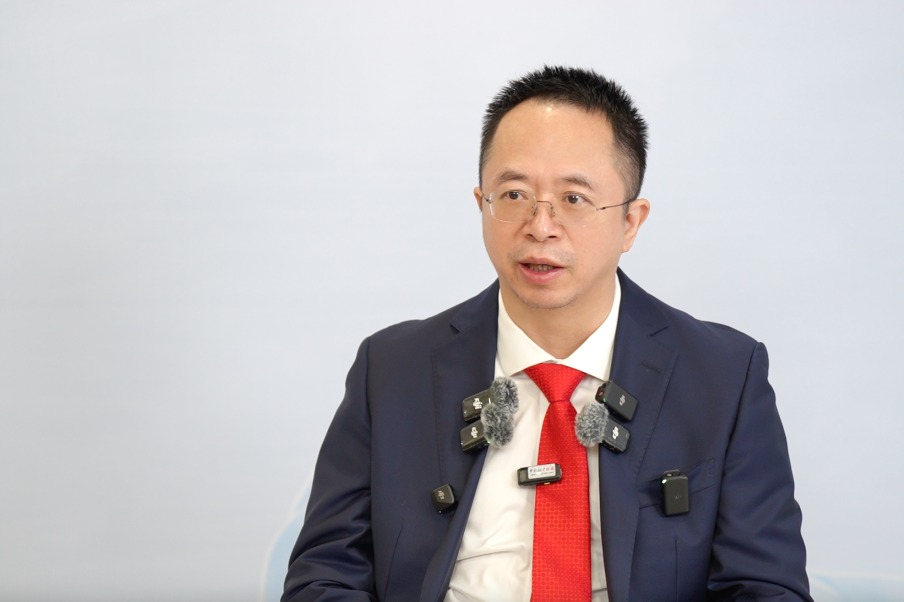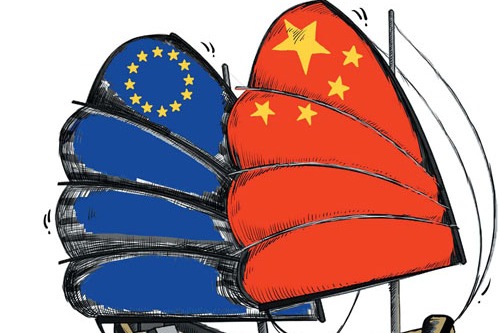Responsible Party
CPC's closeness to the people and its ability to fully mobilize their initiative and creativity have been the linchpins for its successful governance


When we consider the role of political parties in governance in developing countries, the Communist Party of China surfaces as a successful model and example, given the positive and remarkable results that China has achieved in economic and social development since the proclamation of the People's Republic of China in 1949, and particularly since the launch of the reform and opening-up policy in 1978.
The CPC has succeeded in developing a socialist theoretical system with Chinese characteristics, which has helped guide reform, opening-up and economic development and strengthened the people's confidence in the future.
The Chinese development experience has its own characteristics in that economic reforms have been carried out while preserving the political system led by the CPC, contrary to the Western view that the establishment of a multi-party and open system should precede economic reforms.
Indeed, the CPC's experience shows that the socialist system of democratic centralism is much more appropriate to the reality of China as a developing country than the Western system, because once a consensus is reached and a decision is made within the CPC, the adopted policy can be implemented immediately without the risk of a boycott or immobilization.
The advantage China has is that this system can adopt difficult but crucial policies that are necessary to advance a society toward progress.
Moreover, the Party-led system has enabled China to maintain sociopolitical stability, which is a sine qua non for the success of economic reform. Contemporary history has already shown that without sociopolitical stability, economic efforts will not succeed.
The CPC has been able to achieve reform and progress in China because of several advantages in terms of guiding ideology, ideological and political work, organizational system, institutional mechanism and support among the masses.
As for the guiding ideology, the CPC has developed Marxism by taking into account the realities of the country, thus laying out the path of socialism with Chinese characteristics. The Party's values are based on Marxist theory and have enabled the whole Party to cope with the difficulties and stimulate China's economic growth.
The CPC continues to stick to Marxist theory, and is enriching it and developing it under Chinese realities to create the "Chinese miracle".
One of the CPC's important advantages is that its ideological corpus is continuously evolving as evidenced by the integration at the 19th CPC National Congress in October 2017 of Xi Jinping Thought on Socialism with Chinese Characteristics for a New Era.
With regard to ideological and political work, the CPC has been engaged in the continuous mission of educating Party cadres and the masses in Marxism-Leninism, Mao Zedong Thought and Xi Jinping Thought on Socialism with Chinese Characteristics for a New Era, with the aim of developing correct ideological and practical positions, views and methods, and strengthening their ideals and convictions through practice.
The CPC has been able to unite the Chinese people through ideological and political work to fulfill its historical missions, especially since this ideological and political work is strengthened to mobilize the people and increase creativity, cohesion and efficiency.
As for the organizational system, the CPC has given priority to organizational work and established multi-level organizations to ensure the rapid development of the Party's cause at all levels.
Party organizations are present in all administrative bodies of the country, from the Central Committee to the basic level, to help implement the Party's principles and policies.
Regarding the institutional mechanism, the CPC has been able to develop a principle of democratic centralism, combining centralism based on democracy and democracy under centralized leadership.
Democratic centralism has served as an effective channel for Party organizations and members to exercise their democratic rights and unify their will, which is conducive to the unity of Party members in ideology and action.
Moreover, democratic centralism has provided an appropriate balance between democracy and centralism, rather than prioritizing democracy to reduce the effectiveness of decision-making or preferring centralism to an established authoritarian system.
The principle of democratic centralism has strengthened the Party's leadership and provided an institutional guarantee for building an advanced Party.
With regard to support among the masses, it should be emphasized that the CPC's close relationship with the Chinese people is the incarnation of its nature and purpose. In other words, the fate of the Party's actions for development in China depends on its ability to maintain its ties with the people.
Indeed, the efforts to stay close to the people, to rely on the people, and to fully mobilize their initiative and creativity have been the basis of every victory of the CPC and have garnered the support of all, which is the most solid foundation for the Party's governance.
The most important advantage the CPC has, in my opinion, is its close ties with the masses and the priority given to the interests of the people, in order to facilitate the Party's efforts to overcome risks and challenges and to make extraordinary progress with the people.
In the fight against the COVID-19 pandemic, for example, the CPC effectively managed the health emergency by placing the people at the center of the measures adopted.
The governance of the CPC is a pillar in China's development and its experience offers an option for the rest of the developing world and a reference for other political parties around the world.
The CPC guided the Chinese people to a historic victory against poverty.
The universal value of the governance of the CPC may, in fact, offer some hope for non-traditional development paths and encourage the exploration of possibilities that until recently were considered inconceivable.
The author is Algeria's ambassador to China. The author contributed this article to China Watch, a think tank powered by China Daily. The views do not necessarily reflect those of China Daily.
































